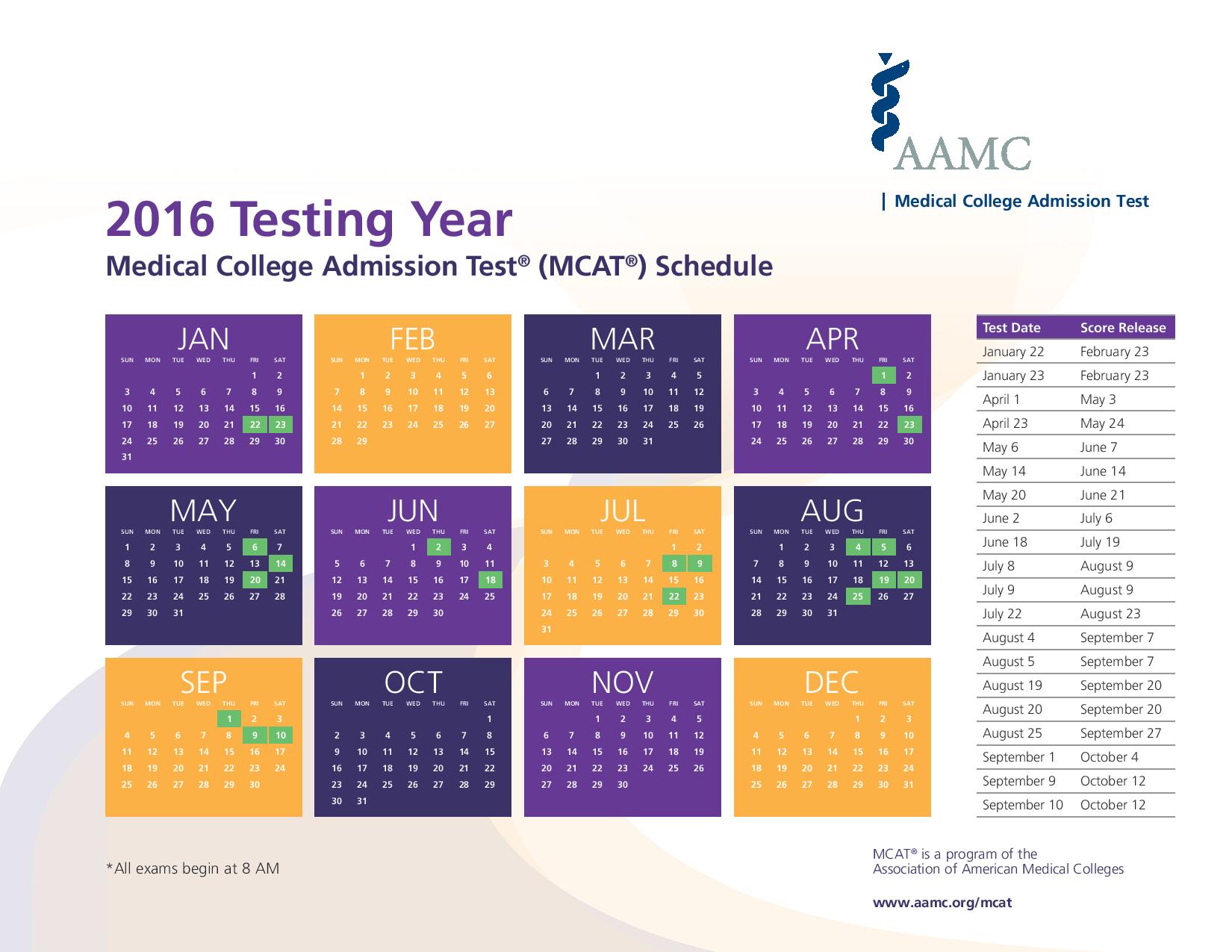The Medical College Admission Test (MCAT) is a multiple choice test that is aimed at assessing problem solving, writing skills, critical thinking, and knowledge of scientific and medical concepts. If you wish to study medicine, you will most likely have to take this examination, as most medical schools will pose this as a requirement, and your test-results are taken into account significantly during the application process.
When to Take the MCAT
The short answer is when you have thoroughly revised and you are ready for the examination. In most cases, you should take the exam in the calendar year prior to the year in which you plan to enter medical school (for example, if you are applying in 2016 for entrance to medical school in 2017, you should take the exam in 2016).

The examination is carried out 20 times throughout the year (from January through to September), meaning that you should be able to find a time best suited to you. Some other things to consider when trying to ascertain when to take the MCAT include:
- Taking the test before you apply for medical school can be advantageous in numerous ways, as you will not only be able to use your results to assist your application, it may also help you decide what to apply for.
- If one was to submit their American Medical College Application Service (AMCAS) application before taking the MCAT, then the scores will be forwarded to the relevant institutions once the examination has been taken. Try to do the MCAT as soon as possible, but, whilst it would be best to do the MCAT before submission, don’t put off submitting your AMCAS just because you haven’t done your MCAT.
- Taking the test by June means that you will likely have time to re-take the test within the same academic year (if your grade was not satisfactory or to your expectations).
- Medical schools often do not review an applicant without an MCAT. This means that if you take the test in September, the latest date in which the MCAT is administered each year, then you may experience a delay in your application.
- Tests taken in September offer no chance of a retake within the same academic year, meaning that there are no second chances if you do not do as well as expected.
What’s On the Test?
Along with wishing to ascertain when to take the MCAT, it would also be wise to learn what to expect from the examination. There are four sections in the MCAT: physical sciences, verbal reasoning, writing sample, and biological science. These sections are explained in further detail below:
Physical Science: Aimed at assessing one’s problem-solving aptitude in relation to physics and chemistry. This section includes 7 questions based on a passage of text within the examination, and 13 independent questions. These are specifically designed to test critical thinking, as opposed to just memorizing facts.
Biological Science: This section is much like physical science, the questions (both passage-based and independent) are designed to test your critical thinking in relation to biology, as well as organic chemistry.
Verbal Reasoning: Tailored to assess an examinee’s ability to understand, assess, apply arguments and information. This section consists of seven passages from various medical fields, which are to be read before answering questions about the seven passages (each of around 600 words). Unlike the sections above, all of the information required to answer these questions will be in the passages, one must evaluate the information and provide appropriate arguments and answers to the given questions.
Writing Sample: This section is aimed at assessing one’s aptitude at constructing written concepts and idea in a logical and cohesive way. It involves two essays, each addressing specific topics that one must clearly synthesize a central idea to your written argument. Each essay is to be completed within thirty minutes and usually based on common knowledge subjects.
How to Prepare for the MCAT
Vigorous preparation is required to attain the best result possible. If you fail to prepare, then prepare to fail. Follow the tips below to ensure that you are well prepared, and make sure that you know when to take the MCAT to achieve the best results possible:
- For students planning on undergoing examination in April, review should begin from September. Devoting regular time for study and MCAT review.
- Students should ascertain a broad understanding of all the topics and sections of the MCAT exam to ensure that they are most thoroughly prepared.
- Students should take a mock, or practice MCAT exam before undergoing real examination. This will help with preparation for a long day of testing.
- There are various MCAT review materials that one should look over consistently. To prepare for the verbal reasoning section of the examination, it may be wise to read more recreationally, and cut down on the amount of television and movies that you watch.
For more FAQs relating to the MCAT, click HERE. Below are tips and guidelines shared by med students:
